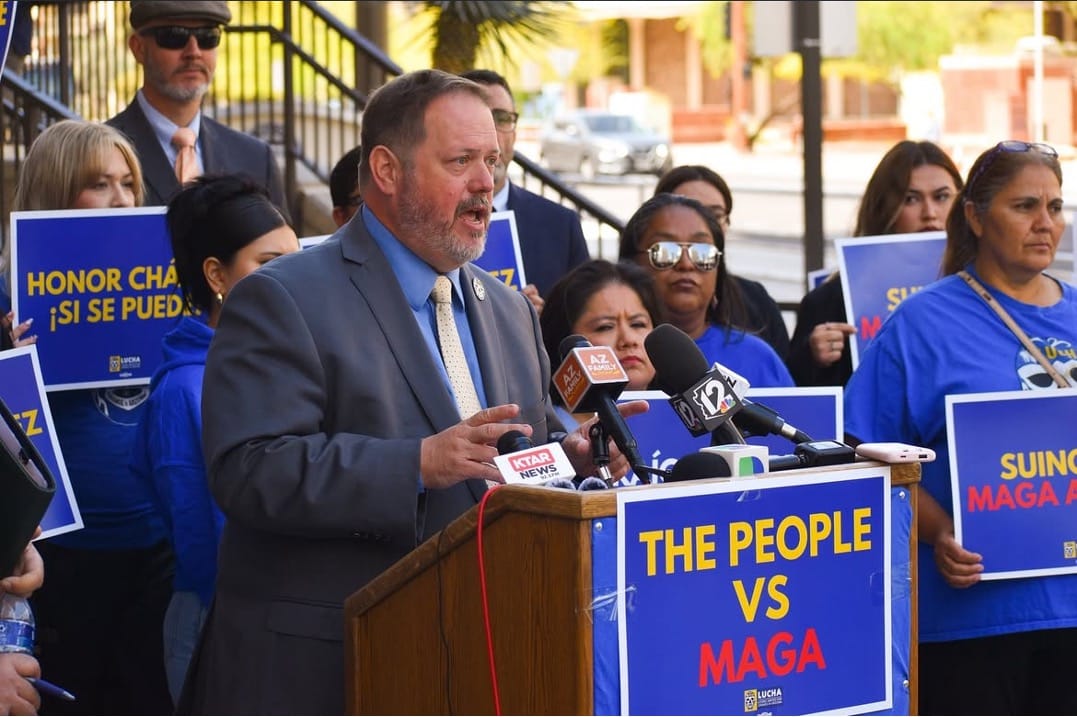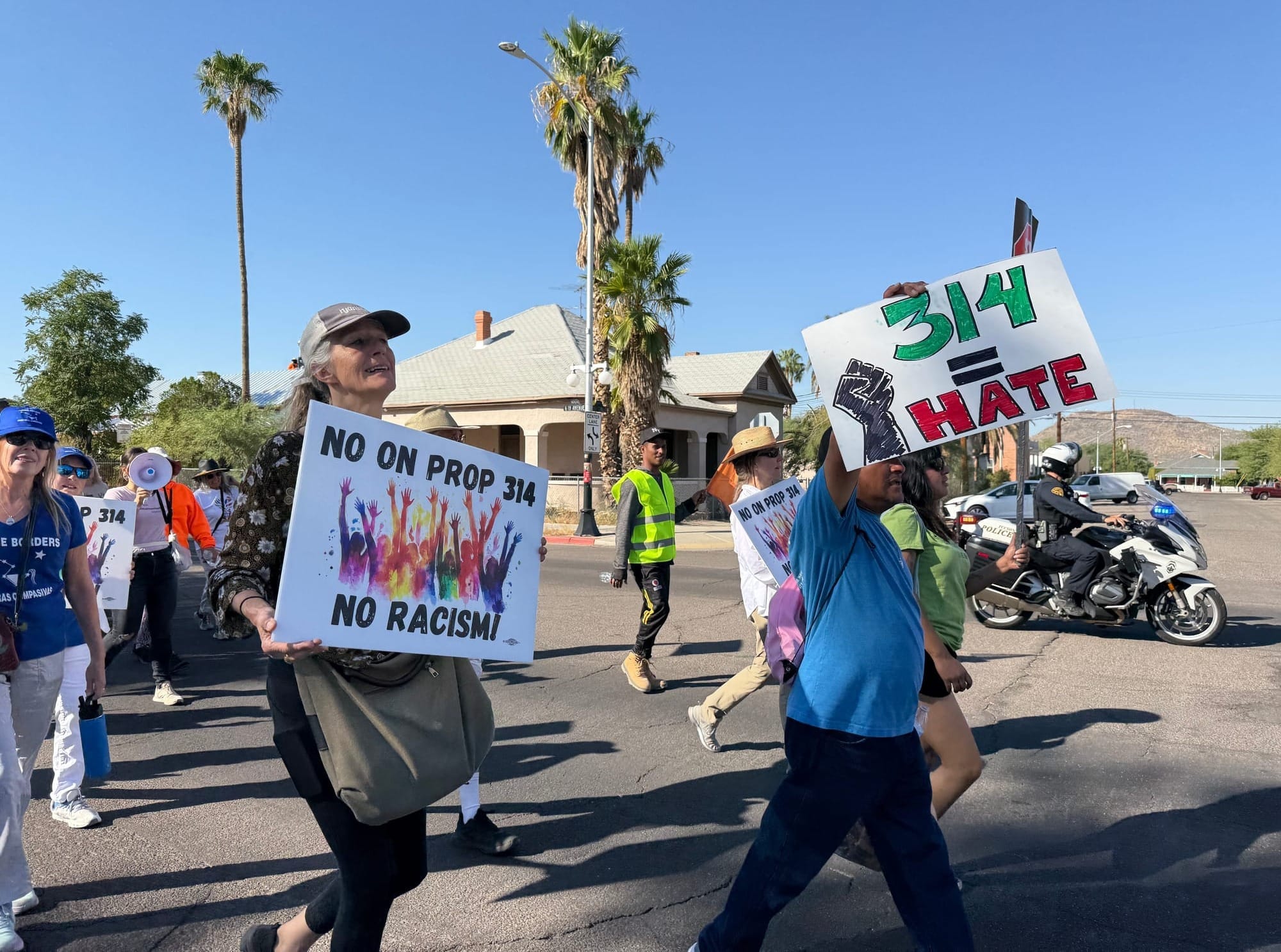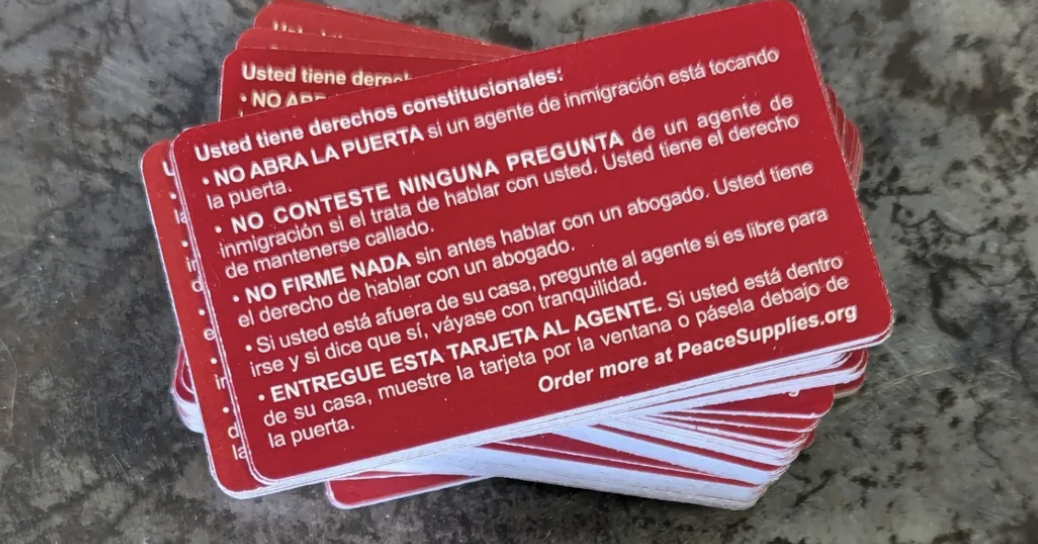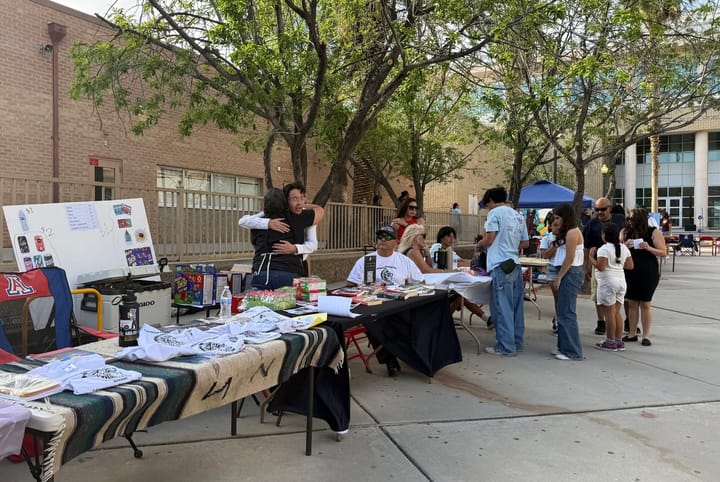Immigrant rights group sues to block Prop 314
An Arizona immigrant rights group has filed a lawsuit challenging Proposition 314, calling it an unconstitutional and unfunded law that endangers immigrant communities under the guise of public safety.

An Arizona civil rights group is suing to overturn a controversial new law that it says weaponizes the opioid crisis to target immigrant communities.
Living United for Change in Arizona calls Proposition 314, which was passed by 63% of voters in the November election, a dangerous and unconstitutional step toward mass deportations and racial profiling under the guise of public safety and border enforcement.
Their lawsuit, filed in Marciopa County Superior Court, says Prop 314 could also lead to hundreds of millions of dollars in unfunded state mandates.
The group estimates Prop. 314 could affect more than half a million immigrant families in Arizona.
The measure “will add fuel to the deportation machine that Trump is unleashing on many communities across the state of Arizona and across the country,” Cesar Fierros, LUCHA’s Communication Director, told Tucson Tucson Spotlight. “We've already seen the mass roundups and the deportations that are happening. Civil rights are being violated, due process is being canceled for so many.”
Prop. 314 was marketed as a tough-on-crime, anti-fentanyl initiative. It has three main points:
- It makes it a state crime for noncitizens to enter the state between ports of entry and allows state and local police to arrest noncitizens who cross the border unlawfully.
- It requires people to verify their citizenship status when enrolling in financial aid or public welfare programs and makes it a felony to submit false information.
- It makes the sale of fentanyl a Class 2 felony if the person knowingly sold fentanyl and it results in the death of a person.

LUCHA says the measure misled voters by tying concerns about the opioid crisis to vague and overreaching immigration provisions without the necessary funding planned for the implementation of the law.
In the wake of Prop. 314’s passage, Tucson Spotlight hit the streets to talk to Latinos about their thoughts. Among those interviewed was a man who voted “yes” on the proposition specifically because of the fentanyl aspect.
He said that while he recognized fentanyl was added as a hook, he voted for it because he doesn’t think people should be able to sell fentanyl at all.
“People at the doors told us over and over again they voted for it because of fentanyl,” said LUCHA Executive Director Alejandra Gomez. “But Prop. 314 is not about fentanyl. It’s about criminalizing immigrant communities and expanding the state’s role in federal immigration enforcement.”
Despite the impact the law could have on Ariziona’s immigrant community, LUCHA’s lawsuit takes a more practical approach. It argues the proposition was put on the ballot without plans to fund the law.
Proponents of the law have said Prop. 314 would save Arizonans money.
“Prop. 314 would limit this strain on social services by ensuring that public benefits are only utilized by those who are lawfully present in the United States,” Nathan Duell, Arizona state director of the conservative advocacy group Heritage Action for America, said in a statement in support of Prop. 314.
He added that Arizona spends $2.3 billion a year on expenditures for undocumented people, according to the Federation for American Immigration Reform, a nonprofit anti-immigration group. He did not provide further detail.
“Opponents of Prop. 314 claim that it will cost the State of Arizona ‘millions of dollars’ in enforcement and incarceration costs while conveniently omitting the fact that billions more will be saved by cutting off benefits and services to foreign lawbreakers who shouldn’t be here in the first place,” Tucsonan Joel Strabala said in another statement of support of Prop. 314.

A report from the American Immigration Council found that the nearly one million immigrants in the state of Arizona contributed $8.7 billion in local, state and federal taxes in 2021.
Jim Barton, LUCHA’s lead counsel in the case, described the measure as an act of “fiscal and moral irresponsibility,” accusing its Republican sponsors of intentionally obscuring the measure’s cost and impact.
“Senators Peterson and Kavanaugh are all over Fox News, saying that they know it's going to cost millions of dollars, but they don't care,” Barton said. “(To them,) it's worth it to get rid of certain kinds of people, but despite their claims that all this is worth it, they deliberately hid the fact that this was a mandatory expenditure. They did not include it in the legislative council's analysis that went into the pamphlet. They did not include a funding source in the bill itself.”
Barton said the lawsuit focuses on three major constitutional violations.
The first is that Arizona’s constitution requires any ballot measure that mandates new government spending to clearly state a funding source.
“It's very straightforward,” Barton said. “The Arizona constitution requires, if you mandate new expenditures, you have to provide a funding source. And if you don't, the measure is unconstitutional. So this measure is plainly unconstitutional.”
Prop. 314 mandates new immigration enforcement actions like mandatory incarceration and verification through the federal Systematic Alien Verification for Entitlement database without any designated funding. The result is hundreds of millions in unfunded mandates, according to Barton.
“The legislature is constantly going on about ballot measures being unfunded mandates,” Barton added. “This is to the tune of hundreds of millions of dollars of unfunded mandates.”

LUCHA Communications Director Fierros said that if voters had known how much the law would cost, they might not have voted “yes.”
The second alleged constitutional violation is that the law attempts to redefine legal standards like "probable cause," a function Barton says is the responsibility of the judiciary, not legislators, referencing the necessary separation of powers.
The final constitutional violation, according to LUCHA, is the conditional implementation of the law, which won’t take effect in Arizona unless Senate Bill 4, a controversial Texas law, is implemented.
Barton argues that deferring state law to another state’s legislature is a clear violation of Arizona’s Constitution.
This is LUCHA’s second effort to challenge Prop. 314.
Last year, the group filed a lawsuit to get the proposition thrown off the ballot, but failed against a conservative Supreme Court.
The group is more hopeful this time, saying the Arizona constitution is clear.
“This law is unconstitutional in multiple ways,” Barton said.
The case will move through Maricopa County Superior Court, but Barton predicts it will eventually land before the Arizona Supreme Court. LUCHA’s lawsuit is part of a wider resistance movement in Arizona against what it sees as anti-immigrant rhetoric.
“Arizona has a long history of fighting back,” Gomez said. “We’re seeing that same energy now.”
Susan Barnett is Deputy Editor of Tucson Spotlight and a graduate student at the University of Arizona. She previously worked for La Estrella de Tucson. Contact her at susan@tucsonspotlight.org.
Tucson Spotlight is a community-based newsroom that provides paid opportunities for students and rising journalists in Southern Arizona. Please support our work with a paid subscription.




